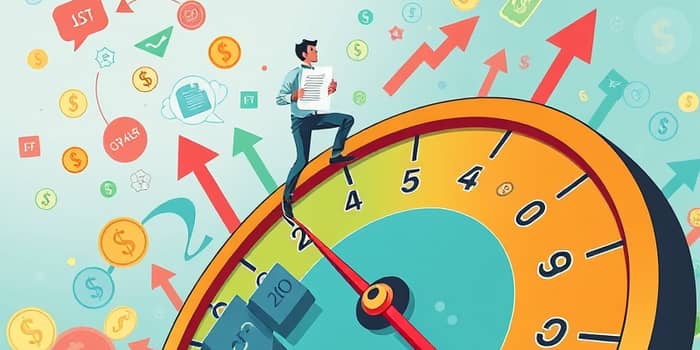
When considering a personal loan, many borrowers focus on interest rates and monthly payments, often overlooking one critical factor: your credit score trajectory. Understanding the nuanced relationship between personal loans and credit ratings can empower you to make smarter financial decisions.
In this article, we explore both the immediate and long-term effects of personal loans, provide actionable strategies, and inspire you to harness these insights for lasting financial health.
Personal loans are installment loans, typically unsecured, used for varied purposes such as debt consolidation, large purchases, or emergencies. Because they lack collateral, lenders rely heavily on credit scores during approval.
Your FICO score comprises five components: payment history, amounts owed, length of credit history, new credit, and credit mix. Each plays a distinct role in how a personal loan impacts your overall rating.
The moment you apply for a personal loan, lenders perform a hard inquiry on your credit report. This usually causes a small, temporary dip—often only a few points—and remains visible for up to two years, though its impact fades after about one year.
Upon approval, your total debt balance rises, which can further lower your score in the short term. Additionally, the average age of your accounts decreases, slightly affecting your length of credit history.
While these initial changes might feel discouraging, remember they are transient. The temporary dip is typically outweighed by potential long-term gains when managed responsibly.
Making on-time payments consistently improves your credit score over time. Since payment history carries the greatest weight, even one missed or late payment—especially over 30 days late—can significantly harm your rating.
Conversely, a solid record of punctual payments demonstrates reliability to future lenders. Whether your loan term spans one year or five, each successful payment acts like a building block, reinforcing trust in your financial habits.
Another benefit of a personal loan is diversification of your credit portfolio. By adding an installment loan to existing revolving debts (like credit cards), you enhance your credit mix. This variety signals to credit bureaus that you can manage different debt types responsibly.
Although a personal loan doesn’t directly affect revolving credit utilization, using it to pay off credit card balances can dramatically lower your overall utilization rate. Experts recommend keeping utilization below 30% to maintain optimal scores.
By consolidating high-interest credit card debt into a structured personal loan, you can reduce monthly interest charges and improve your credit utilization simultaneously. This dual benefit exemplifies the strategic power of debt consolidation.
Regular credit monitoring allows you to observe the positive effects of disciplined loan management. As installments are paid on time, expect gradual score rebounds, typically within 30 to 45 days after each reported payment.
Even after full repayment, your score may dip momentarily due to the reduced credit mix. However, this is usually short-lived, and your rating often stabilizes or improves as the account ages favorably in your credit history.
Ultimately, a personal loan can be a catalyst for improved credit health—if approached with knowledge and discipline. By understanding the interplay between payment history, amounts owed, credit mix, and other factors, you gain the power to shape your financial future.
Embrace these insights, craft a repayment plan that suits your goals, and witness how conscientious loan management transforms your credit profile. Your journey to stronger financial well-being begins with informed action today.
References













